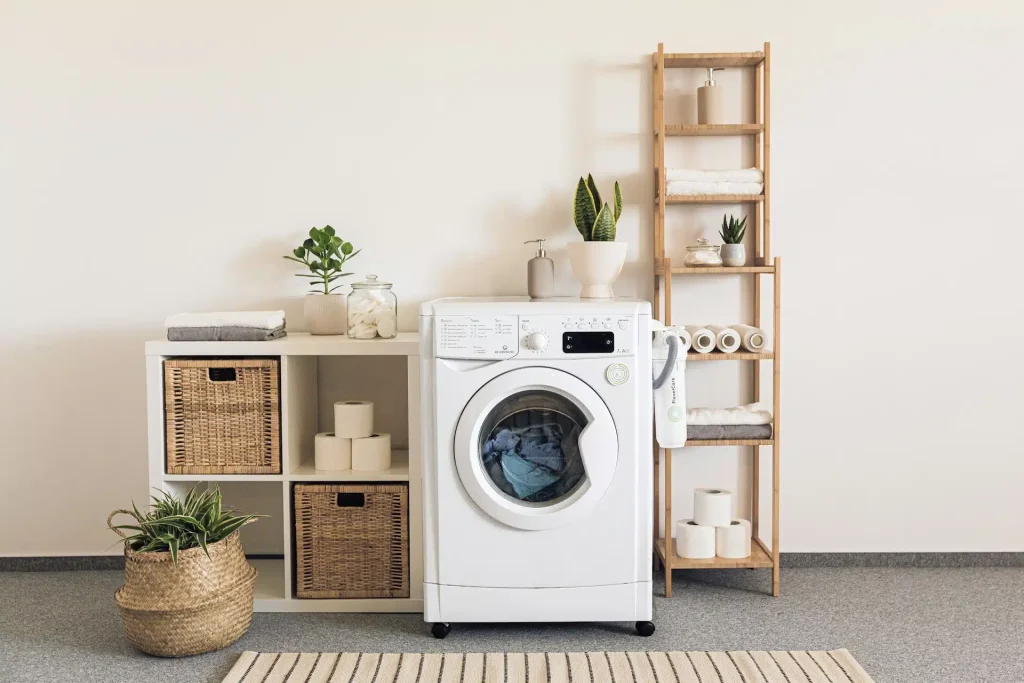Keeping a home clean and running smoothly can feel like a full-time job. But here’s some good news, you don’t have to do it all alone. Whether you’re living with family or roommates, the right plan can save time, avoid fights, and make life easier. One smart way to start is by looking into home maintenance plans. These can take care of the bigger jobs, so you and your housemates can focus on daily tasks.
In this guide, you’ll learn how to divide chores fairly, set clear rules, and make sure everyone does their part. Let’s make home life stress-free.
Why Sharing Household Tasks Matters?
When one person does everything, it leads to stress and burnout. Sharing tasks keeps things fair. It also helps everyone feel like they’re part of the home. A clean and organized house makes life better for everyone.
Doing chores together builds trust. It also helps people learn life skills like cooking, laundry, or fixing small things around the house.
Start With a Group Chat or Meeting
Before dividing tasks, talk openly. Gather your family or roommates and have a short meeting or group chat. Be honest about your schedules and what you like or dislike doing. This avoids future problems.
Let everyone say what they prefer. Maybe someone enjoys cooking but hates vacuuming. That’s okay. Use this talk to make sure each person’s voice is heard.
Make a Weekly Chore Chart That Works
A weekly chart helps keep things fair. You don’t need a fancy app. A simple list on the fridge or a shared Google Doc can work well.
Here’s what to include in your chart:
- Daily tasks like dishes and trash
- Weekly tasks like laundry or vacuuming
- Monthly tasks like cleaning windows or the fridge
Rotate chores every week so nobody gets stuck with the same job forever. This keeps things fresh and fair.
Match Chores to People’s Strengths
Not everyone is good at the same things, and that’s fine. If one person is great at fixing things, they can handle small repairs. If another loves organizing, let them sort the pantry or closets. Matching chores with what people enjoy makes them more likely to get done without stress.
Set Clear Rules for Shared Areas
Shared spaces like kitchens, bathrooms, and living rooms should always be clean. Set rules everyone agrees on. For example:
- Wash your dishes after eating
- Take turns cleaning the bathroom
- Don’t leave personal stuff in the living room
- These simple rules help avoid tension and arguments later.
Use Reminders but Don’t Nag
People forget things, especially when they’re busy. Gentle reminders can help. Use sticky notes, group chats, or calendar alerts.
Avoid nagging. It only creates tension. A better way is to say, “Hey, just a reminder about your chore today,” instead of “Why didn’t you do your job again?”
Be Flexible With Busy Schedules
Some weeks are harder than others. If someone is sick or has exams or work deadlines, give them a break and adjust the chores.
Being flexible shows respect. It also builds trust, and they’ll likely return the favor when you need it.
Have a Monthly Check-in
Once a month, take a few minutes to check how things are going. Are chores being done? Is everyone happy with the system? Do changes need to be made?
This talk doesn’t need to be long. Just 10 minutes can keep things running smoothly and avoid small problems turning into big ones.
Outsource Big Jobs When You Can
Some tasks are just too much to handle, like fixing the roof or deep-cleaning the HVAC system. That’s where home maintenance plans come in.
These plans can cover major repairs and seasonal tasks. This saves you time and removes stress. Instead of arguing over who should fix the leaky sink, let the professionals handle it. It’s a smart investment, especially for homeowners who want peace of mind.
Make It Fun When You Can
Doing chores doesn’t have to be boring. Turn up the music. Set a timer and see who finishes first. Or reward yourselves with a fun movie night after cleaning day.
When people enjoy the process, they’re more likely to help out regularly. A little fun goes a long way.
Say Thank You Often
Gratitude matters. A simple “thank you” after someone does their task can keep the mood positive. It shows you notice and care.
People are more likely to keep doing their part when they feel appreciated.
Handle Conflicts the Right Way
Sometimes people forget or don’t do their part. When that happens, stay calm. Don’t yell or blame.
Instead, talk privately and ask what’s going on. Maybe they need help or forgot the schedule. Solve the problem together without making it a big fight.
Keep Things Simple and Fair
The key to a happy home is teamwork. Don’t make the system too hard. Keep the chart simple. Stick to clear rules. Make time to talk and adjust when needed. And remember, not every job needs to be done by you. With home maintenance plans, you can take big tasks off your plate. That way, you and your housemates can focus on living well and getting along.
Final Thoughts
A clean, calm home doesn’t happen by accident. It takes teamwork, planning, and respect. Start with a simple chart, talk openly, and stay flexible. With the right approach, you can keep your home running without stress and even have some fun along the way.
Let professionals help with the big stuff. Look into home maintenance plans to save time and avoid costly surprises. A little planning today can save you a lot of hassle tomorrow.





















